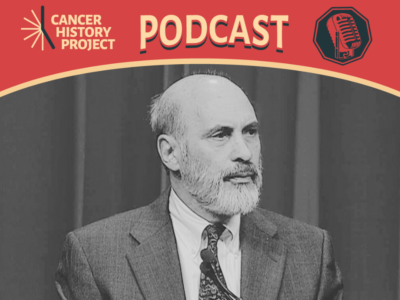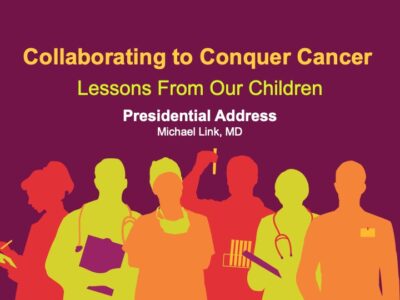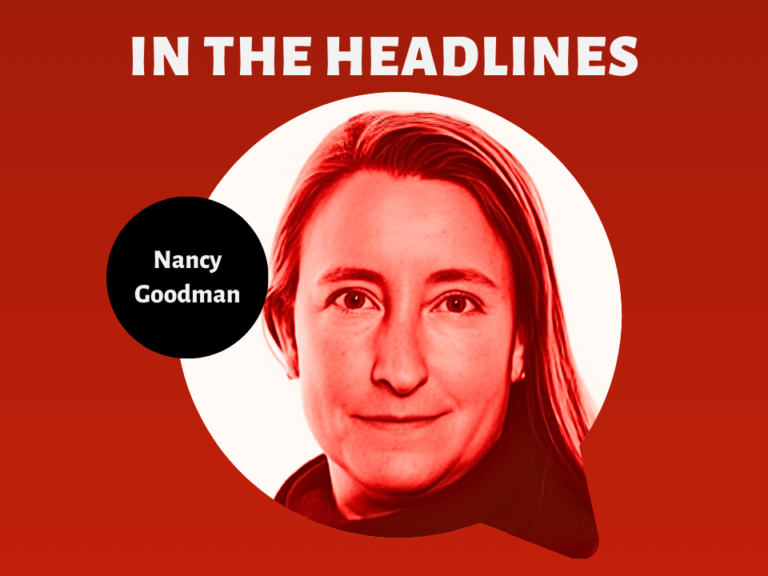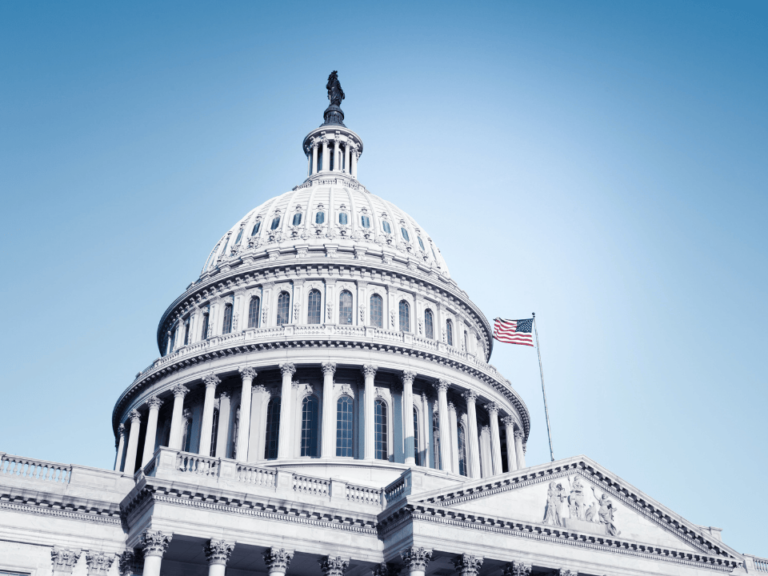

Appearing on the Cancer History Project Podcast, Michael P. Link, the Lydia J. Lee Professor in Pediatric Oncology at Stanford University, discussed his career in pediatric oncology, his 2011-2012 ASCO presidential term, and voiced concerns about what he’s seeing in oncology today.
The prognosis for children with cancer has shifted dramatically over the course of Link’s career, he said:
There’s a certain optimism about doing this because we have moved the needle so far, even in the time period of my career, not because of my career particularly, but in that time period.
I mean, things have really changed to where we cure the overwhelming—or let’s say 80%—of all kids with cancer and leukemia. When I was a fellow, it was 40% of the kids were cured, and now it’s more than 90%.
And I remember in particular, Burkitt Lymphoma, when I was a resident, we would see these kids and every one of them, although they seemed to respond initially, every one of them would die of their disease. And now we cure that disease with impunity. And it’s remarkable.
And also remarkable is that the drugs that we use, they’re very few that weren’t available at the time I was a resident. So it’s really collaboration, incremental improvement in clinical trials, and having virtually every patient participate.
So, it’s been a good run for pediatricians, and I suspect that that incremental improvement every time you do something and knowing that you have a wide-ranging impact on all the kids with cancer, that’s the kind of thing that keeps us optimistic, even in our times.
To date, Link is the only pediatric oncologist ever to have served as ASCO president.
“There’s two messages there,” Link said. “They didn’t repeat it, so that may be a reflection of what they thought about my presidency, but I like not to think that.”
“I like to think that they learned something from pediatricians, and I hope that there will be soon another pediatric president.”


In his 2012 presidential address, titled “Collaborating to Conquer Cancer: Lessons from Our Children,” Link called on the field to follow the model set by pediatric oncology.
“You know, pediatrics, we sort of are the tail end of things,” Link said on the podcast. “But when you see my ASCO presidential address, you’ll see that we think that we’ve been leading the way and we’ve provided the model for how we should proceed.
“As some of my mentors, the Joe Simones, David Nathans, Phil Pizzos of the world, yes, they certainly would subscribe to that.”
Looking back on his time as ASCO president, Link acknowledged that many themes have resurfaced in recent years—particularly immunization and drug shortages.
“I’m a pediatrician, so here I am and they have measles? I mean really, measles in 2025? How is that possible?” Link said. “I never thought I’d be in a position where I have to talk to people about measles and polio and chickenpox as a threat… And measles, it’s a matter of how serious your illness is going to be, and if you’re immunocompromised, it’s life threatening.”
Drug shortages had a major impact during his presidential term. In his 2012 presidential address, Link said, “all this newfound insight into these diseases and their treatment is only as good as our ability to deliver what we know. The current chemotherapy shortage is emblematic of the precarious nature of the path between the discovery and the delivery of our most exciting new findings.”
Speaking on the podcast, Link called this an issue of “whack-a-mole”—where off-patent drugs go into shortage on a regular basis. “Can you believe that here we are in whatever year it is, 20-whenever, the next shortage is going to come and we don’t have access to this?”
His time as ASCO president has shaped the trajectory of the rest of his career, Link said, by showing him the importance of advocacy.
“If you really want to move the needle and make sure that there are drugs available, or whatever it is, that kids have insurance, then you really have to get involved in the advocacy business,” he said. “So that’s where I’ve migrated, but I still love taking care of patients.”
Read more on the Cancer History Project, including an archive of related materials.
This oral history interview is available on Spotify, Apple Podcasts, and YouTube.
The Cancer History Project is a free, collaborative archive of oncology history that aims to engage the scientific community and the general public in a dialogue on progress in cancer research and discovery.
This project is made possible with the support of our sponsors: the American Society of Clinical Oncology, the University of Texas MD Anderson Cancer Center, ACT for NIH, UK Markey Cancer Center, Rutgers Cancer Institute of New Jersey/RWJBarnabas Health, The University of Kansas Cancer Center, and the National Comprehensive Cancer Network.
The Cancer History Project is an initiative of The Cancer Letter, and is backed by 60 partners, spanning academic cancer centers, government agencies, advocacy groups, professional societies, and more.
Interested in learning more about the history of oncology? Subscribe to our monthly podcast on Spotify or Apple Podcasts.









